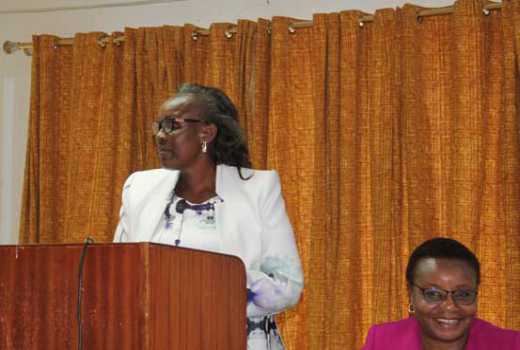
Teachers Service Commission (TSC) secretary and Chief Executive Dr Nancy Macharia has said ongoing curriculum changes in the education sector will have three pathways at senior Secondary school level hence the need to continuously update teachers’ content and delivery skills through regular training.
“The pathways will comprise Arts and Sports, social sciences and Science, Technical, Engineering and Mathematics (STEM) that in particular will require teachers to continuously upgrade their pedagogical and ICT skills,” said Dr Macharia in a speech read on her behalf by Ag. Deputy TSC Secretary Mr Simon Kavisi at a stake holders meeting in Nakuru on Strengthening of Mathematics and Science Education (SMASE).